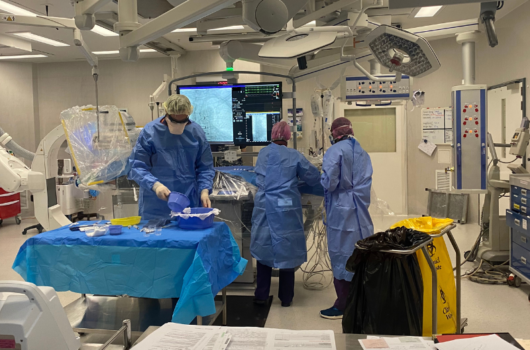Help for those with eating disorders or body image anxiety

Anyone can develop an eating disorder and a person’s physical appearance does not indicate if they have the condition, according to LRH eating disorders dietitian Alexandra Baker.
About nine per cent of Australia’s population will experience an eating disorder in their lifetime.
The Butterfly Foundation, a national service for people affected with these conditions, has highlighted body image concerns and eating disorder symptoms jumped by 50 per cent during the pandemic, while a staggering 90 per cent of young people report some level of body image anxiety.
A federally-funded National Eating Disorders Strategy was recently released and aims aimed to help guide policies and improve the supports around the issue.
“Eating disorders are more common than people think and many don’t seek help, for a number of reasons,” Alexandra said.
“I suspect there are people in our community with significant food and eating concerns who are undiagnosed.
“One of the challenges is that we live in a society where concerning attitudes and behaviours are often normalised or praised.
“We are surrounded by diet culture messages promoting pursuit of an ideal body, and people are judged, stigmatised and discriminated against because of their appearance.”
Alexandra said an eating disorder is classified as a serious mental health issue that is characterised by disturbances to thoughts, behaviours or attitudes to food and eating.
She said people of any gender can develop an eating disorder and it can occur at any age, especially at higher risk times during body change such as puberty, pregnancy, or ageing.
Eating Disorders may also be more prevalent amongst certain population groups including the LGBTIQA+ community, neurodivergent individuals, and professions that might have a weight or appearance-based focus such as actors or weight-class rowing.
These conditions can present differently for each individual and may include food, eating or exercise changes or rules, body image distress, with people often reporting feelings of anxiety, guilt or shame.
“It’s really important to understand the context of these behaviours,” Alexandra said.
“The concerns or behaviours that are part of someone’s eating disorder can change over time. Historically, this may have impacted the supports available to the individual in their recovery.
“All people are deserving of support to recover from their eating disorder, no matter what diagnostic label they’ve been provided.
“An eating disorder is definitely treatable with the right support team.”
The theme of Body Image and Eating Disorder Awareness Week earlier this month was: ‘The time is now to act’.
Advocates for people with these illnesses insist recovery is achievable with early intervention and the right support.
The Butterfly National Helpline is 1800 334 673 or email support@butterfly.org.au






